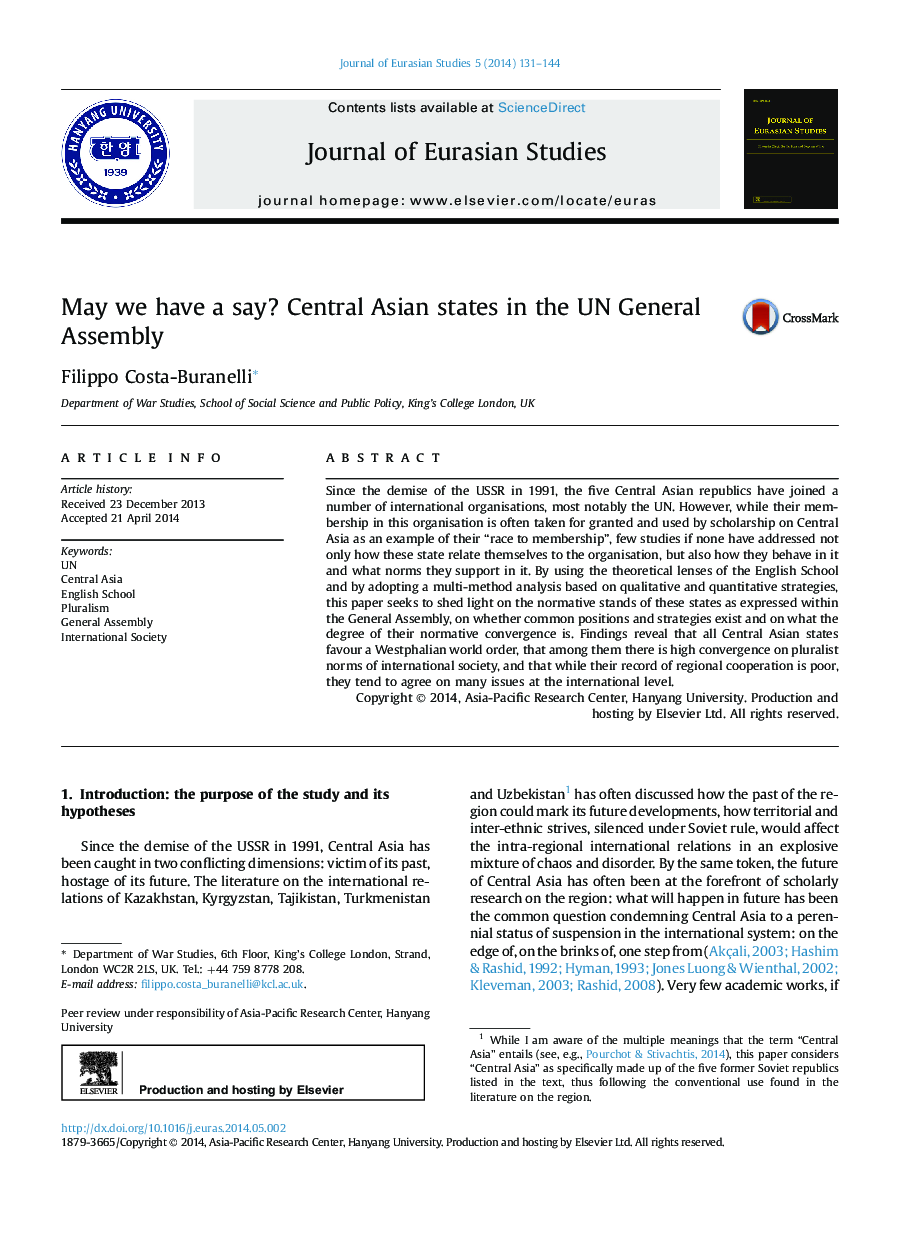| Article ID | Journal | Published Year | Pages | File Type |
|---|---|---|---|---|
| 1127193 | Journal of Eurasian Studies | 2014 | 14 Pages |
Since the demise of the USSR in 1991, the five Central Asian republics have joined a number of international organisations, most notably the UN. However, while their membership in this organisation is often taken for granted and used by scholarship on Central Asia as an example of their “race to membership”, few studies if none have addressed not only how these state relate themselves to the organisation, but also how they behave in it and what norms they support in it. By using the theoretical lenses of the English School and by adopting a multi-method analysis based on qualitative and quantitative strategies, this paper seeks to shed light on the normative stands of these states as expressed within the General Assembly, on whether common positions and strategies exist and on what the degree of their normative convergence is. Findings reveal that all Central Asian states favour a Westphalian world order, that among them there is high convergence on pluralist norms of international society, and that while their record of regional cooperation is poor, they tend to agree on many issues at the international level.
